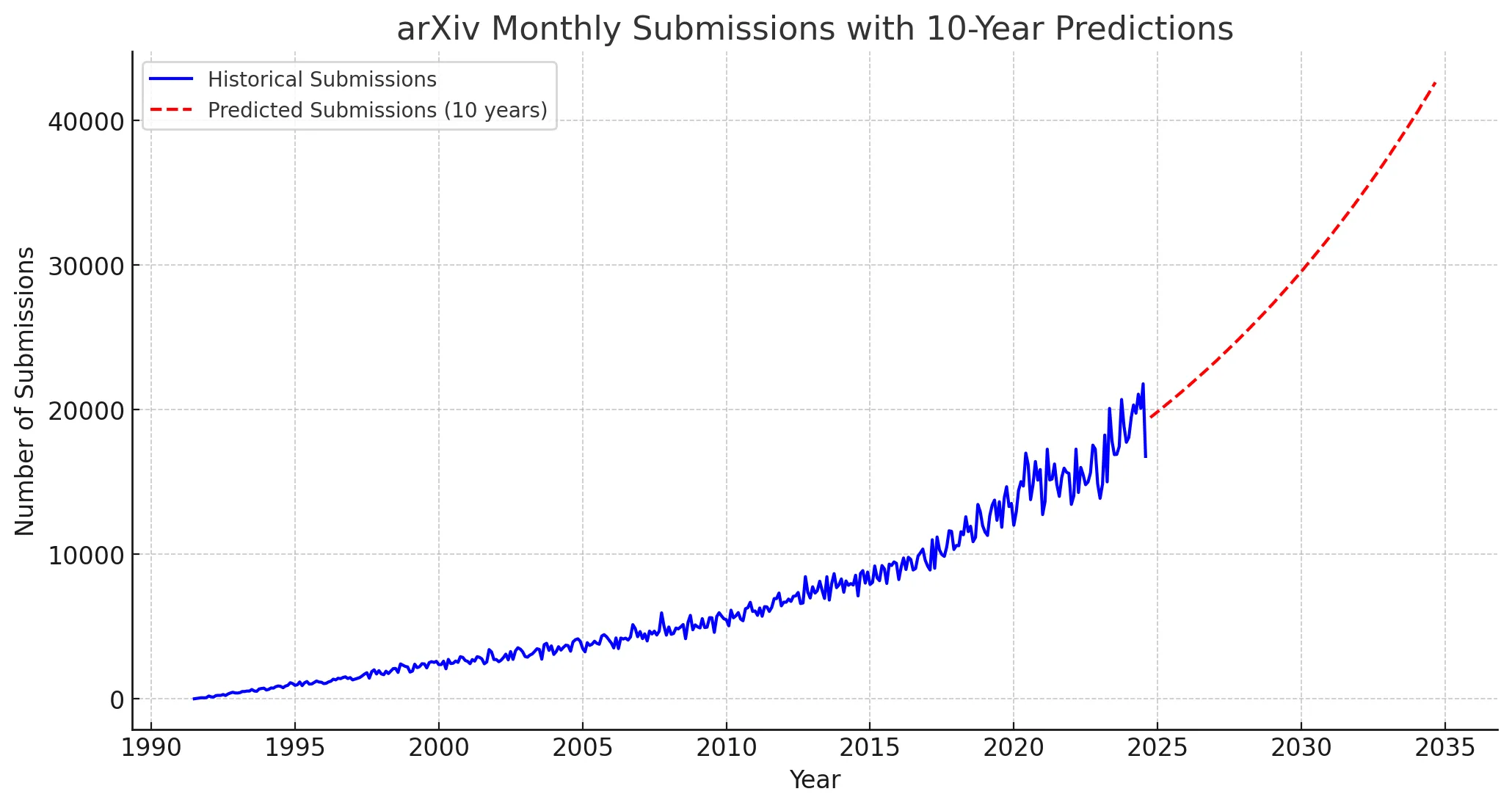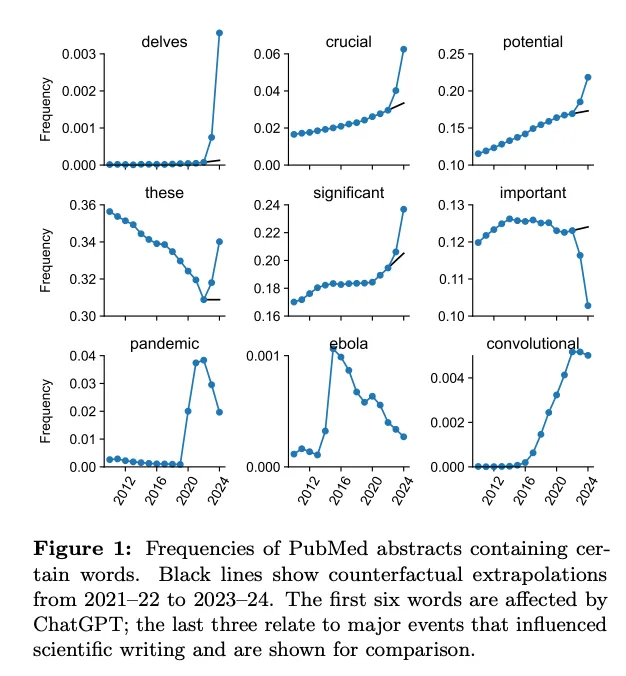Why Still Blog in the Age of Generative AI?
/ 4 min read
Table of Contents
The Rise of Generative AI and the Information Explosion
The advent of generative AI has ushered in an era of unprecedented information output. This impact is particularly evident in the academic world, where the number of papers published on platforms like arXiv is skyrocketing.

The graph above illustrates the monthly submission count to arXiv. The red line represents an exponential approximation, hinting at the continued growth of submissions in the future.
An interesting example is the recent surge in the use of the word “delve” in academic papers, a term not commonly used in everyday language.

This phenomenon is attributed to the tendency of LLMs like ChatGPT to generate this word frequently. ([2406.07016] Delving into ChatGPT usage in academic writing through excess vocabulary)
Evidence suggests that ChatGPT is being used to assist in writing papers submitted to arXiv. This increased productivity through LLM-powered writing is expected to further boost the number of future publications.
ChatGPT and Information Access
Even for technical information, ChatGPT can provide high-quality answers without the annoyance of intrusive ads. If the information doesn’t exist directly on the internet but can be interpolated from existing data, ChatGPT can likely generate it for you.
Why Bother Blogging Then?
Given this context, what is the point of writing technical blogs?
Even extrapolative thinking, the ability to generate new ideas beyond existing information, could potentially be replaced by AI agents. Imagine a scenario: “encounter a bug → search on Perplexity → fix the bug → report the fix.” This entire process could be automated by AI agents in the future. For example: GitHub Next | Copilot Workspace
If we focus solely on doing things that only humans can do, we might eventually find ourselves replaced by AI in every domain. Instead, we should view blogging as a means of personal expression, akin to poetry or art. The goal shouldn’t be to compete with AI, but rather to leverage blogging as a tool for expressing our unique thoughts and perspectives.
Co-creation with AI: A New Era of Blogging
There’s no need to reject the use of AI as a tool for output. The crucial aspect is how we choose to curate and edit the information. This process is driven by our individual experiences, knowledge, and perspectives, stored within our neural networks – something AI cannot replicate.
Generative AI can be seen as a tool to augment our abilities and accelerate our creative process. By viewing generative AI not as a technology that disrupts us, but as a partner that enhances our creativity, we can unlock new possibilities for blog writing.
Through Human-in-the-Loop interactions, where humans and LLMs engage in a creative dialogue, we can craft more unique and engaging blog posts. For instance, we can leverage LLMs to summarize information, suggest article structures, and streamline the writing process, ultimately leading to higher-quality output.
The Evolving Value of Blogs
So, what specific value can we find in blogging today?
- Personal Branding: Clarifying your expertise and values and sharing them with others can enhance your professional performance.
- Sharing Extrapolative Thoughts: Blogs can serve as a platform for expressing intuitive insights and creative ideas that go beyond the capabilities of high-temperature generative AI settings.
- Accelerating Creative Output: By embracing generative AI as a tool for augmenting our abilities, we can leverage Human-in-the-Loop interactions with LLMs to create distinctive and captivating blog posts.
Conclusion
The advancements in generative AI are remarkable, and they hold the potential to replace human activities in various fields. However, blogging retains its inherent value as a platform for human expression and creativity.
By utilizing generative AI as a tool to organize and articulate our thoughts, we can unlock new possibilities and continue to find meaning in the art of blogging.